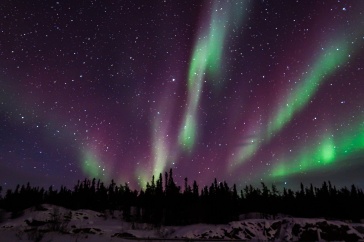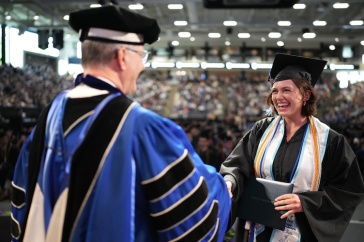
College is a time for students to explore the writing of a wide range of texts, from 19th century literature to contemporary poetry. In that mix may be stories, poems or essays that push the boundaries of conventional writing, whether in style, form, syntax or even presentation. Seth Abramson, assistant professor of English at the University of New Hampshire’s campus in Manchester, co-edits an annual anthology of American writing that celebrates literary pieces that are pushing these boundaries in new and innovative ways.
Best American Experimental Writing 2015, released in January, showcases experimental writing from both established and lesser-known authors. It includes 75 works, many of them poems, that were selected by guest editor and California-based poet Douglas Kearney, co-editors Abramson and Jesse Damiani, as well as from unsolicited submissions. This is the only annual anthology of experimental writing published in the United States, and is the only “Best American”-titled anthology to accept unsolicited submissions, making it a fresh and exciting addition to the nation’s complement of literary anthologies.
The origins of the anthology go back to Abramson’s own writing and his desire to read work that was innovative.
“I became most interested in work that took risks and played with form in ways I’d never seen before,” he said. While studying for his PhD at the University of Wisconsin-Madison, he became friends with Damiani, also studying at the school. “Both of us turned within our own writing practice to more experimental poetry.”
Their shared interest in experimental writing seeded the idea for an annual anthology of such writing. The first edition was published by a small Bay Area house, Omnidawn Publishing. The most recent edition has been published by Wesleyan University Press, the second oldest poetry publisher in the United States, which has also signed on to publish the 2016 and 2017 editions.
One challenge Abramson and Damiani faced in gathering an annual collection of experimental writing was setting parameters on a subcategory of literature that is ever evolving. The pieces the editors look for embrace an ethos, said Abramson, in which risk and experimentation are used to write in a way that goes against convention.
“The best experimental writing provokes debate and discussion among readers about the very essence of literature,” he said.
Part of adopting this “experimental ethos” is deemphasizing the names and notoriety of the authors included and instead focusing on the individual works within. That includes pieces by emerging writers whose work may be too outside the mainstream, or who may simply live somewhere too remote to gain recognition in larger literary circles. These writers, often identified through unsolicited submissions, offer some of the more unique perspectives of the annual collection, said Abramson.
In his own teaching at University of New Hampshire in Manchester, Abramson includes experimental ideas in his literature and creative writing classes. Whether it is adding avant-garde works to his reading lists, or adopting an unconventional writing workshop method to draw out students’ own unique voices, Abramson does not use experimental literature and analysis passively, but as a way to further engage students and develop their own personal writing philosophies.
This makes the University of New Hampshire one of the few universities in the nation to adopt “concept workshops” for the teaching of creative writing, instead of the traditional workshop format. Concept workshops do not put student works in one another’s hands primarily to critique their writing style or aesthetics, but instead to push students to consider both why we write and how an individual genre can offer opportunities for expression and critique no other genre could offer.
“The focus is on poetics rather than aesthetics,” said Abramson. “Each individual student is developing their own idiosyncratic poetics, with the aim of creating writing no one else could have written.”
Abramson, both in the classroom and as an editor, imagines experimental writing playing a larger role in the literary world and in writing instruction. Best American Experimental Writing is a celebration of this writing practice and area of inquiry that will certainly raise its profile.
UNH Manchester offers the career-driven programs, faculty talent and student-centered community to shape your future.
Learn more today
This story was originally published in January 2016.
-
Written By:
Beth LaMontagne Hall | Freelancer
















































